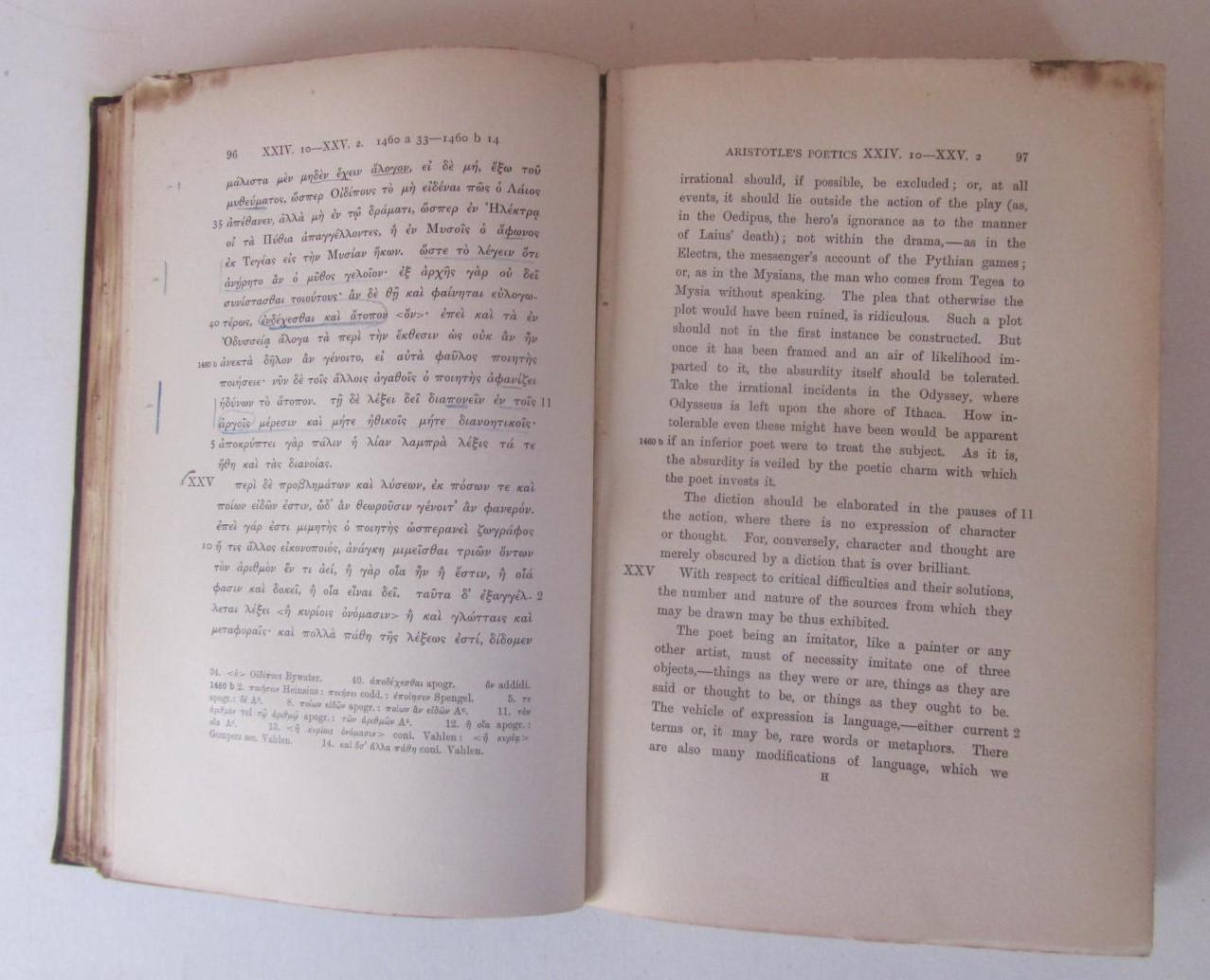
And then there is the enjoyment people always get from representations. From childhood men have an instinct for representation, and in this respect, differs from the other animals that his is far more imitative and learns his first lessons by representing things. Speaking generally, poetry seems to owe its origin to two particular causes, both natural. The latter sets out to represent people as worse than they are to-day, the former as better. It is just in this respect that tragedy differs from comedy. a writer might draw characters like the Cyclops as drawn by Timotheus and Philoxenus. For instance Homer's people are "better," Cleophon's are "like," while in Hegemon of Thasos, the first writer of parodies, and in Nicochares, the author of the Poltrooniad, they are "worse." It is the same in dithyrambic and nomic poetry, for instance. In painting too, and flute-playing and harp-playing, these diversities may certainly be found, and it is the same in prose and in unaccompanied verse.

Clearly each of the above mentioned arts will admit of these distinctions, and they will differ in representing objects which differ from each other in the way here described. Polygnotus depicted men as better than they are and Pauson worse, while Dionysius made likenesses. Since living persons are the objects of representation, these must necessarily be either good men or inferior-thus only are characters normally distinguished, since ethical differences depend upon vice and virtue-that is to say either better than ourselves or worse or much what we are. Rhythm alone without tune is employed by dancers in their representations, for by means of rhythmical gestures they represent both character and experiences and actions.
For tune and rhythm alone are employed in flute-playing and harp-playing and in any other arts which have a similar function, as, for example, pipe-playing. For just as by the use both of color and form people represent many objects, making likenesses of them- some having a knowledge of art and some working empirically-and just as others use the human voice so is it also in the arts which we have mentioned, they all make their representations in rhythm and language and tune, using these means either separately or in combination.


Epic poetry, then, and the poetry of tragic drama, and, moreover, comedy and dithyrambic poetry, and most flute-playing and harp-playing, these, speaking generally, may all be said to be "representations of life." But they differ one from another in three ways: either in using means generically different or in representing different objects or in representing objects not in the same way but in a different manner.


 0 kommentar(er)
0 kommentar(er)
